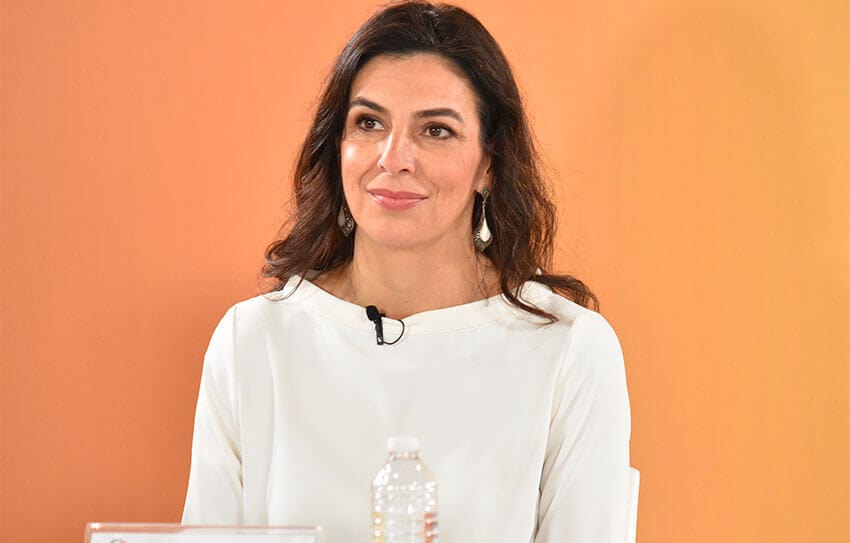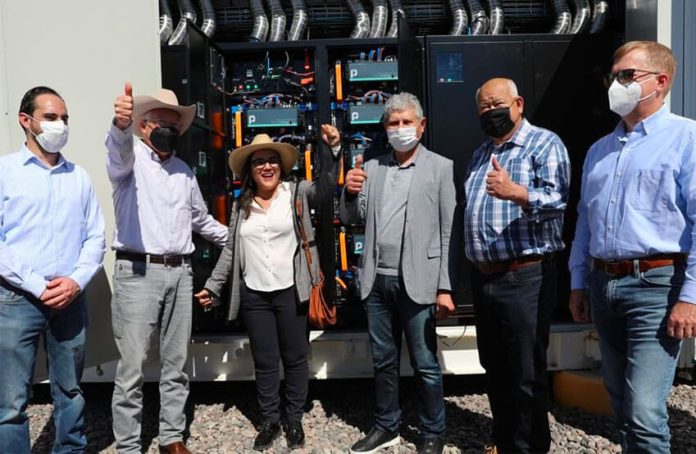The United States has once again criticized the federal government’s proposed electricity reform, warning that the continued use of fossil fuels will hurt both consumers and the economy.
The U.S. Embassy in Mexico published a statement Tuesday that noted that the U.S. government has repeatedly expressed concern about the energy sector proposal, which would guarantee 54% of the electricity market to the fossil fuel-dependent, state-owned Federal Electricity Commission (CFE) and thus limit the participation of private renewable firms.
“Promoting the use of dirtier, outdated and more expensive technologies over efficient renewable alternatives would place both consumers and the economy in general at a disadvantage,” said the statement, published on the eve of U.S. climate czar John Kerry’s meeting with President López Obrador.
“We will listen to the points of view of the Mexican government on a range of energy issues, while we consult with United States private sector companies in order to better understand how to achieve our energy and climate objectives.”
The statement, which summarized Ambassador Ken Salazar’s visit to Baja California Sur on Monday and Tuesday, also said that “Mexico has abundant wind, sun, water resources, geothermal energy and essential minerals that provide big opportunities to lead the clean energy revolution.”
“… By partnering with the United States and Canada to design green energy technologies, and offering clean, accessible and reliable energy that companies increasingly need, North America can become the world’s clean energy power,” it said.
The statement quoted Ambassador Salazar, who has come under fire in recent days after contradicting the Biden administration by saying last week that López Obrador is “right” to seek energy sector reform.
“As the solar and wind facilities that we visited in Baja California Sur show, we can achieve incredible results by deploying the most recent technologies to advance to energy transition needed to combat climate change,” he said.
The United States’ renewed criticism of the proposed reform comes three weeks after U.S. Energy Secretary Jennifer Granholm visited Mexico City and conveyed “real concerns” about the constitutional bill.
Ana López Mestre, general director of the American Chamber of Commerce of Mexico (AmCham), also raised concerns about the government’s plans at an “open parliament” forum on Tuesday, warning the reform would jeopardize investor confidence, the transition to clean energy and the operation of North American supply chains.
Although López Obrador has championed the continued use of fossil fuels, he said Tuesday that Mexico would ramp up its clean energy production if the United States supports the endeavor by providing low-interest loans.

“… It’s a matter of reaching agreements with the United States government,” the president said.
“… Receiving low-interest loans … would be an injection in favor of the environment. The only thing we want to do is strengthen the CFE because it dispatches energy to domestic consumers and guarantees that prices don’t go up excessively,” he said.
López Obrador, Foreign Affairs Minister Marcelo Ebrard and other federal officials will meet Wednesday with Kerry, the United States special presidential envoy for climate, who is in Mexico for the second time in less than four months.
A statement issued by the U.S. Department of State Monday said he would “engage with government counterparts and accelerate cooperation on the climate crisis.”
Any loans provided by the United States could be used to fund the modernization of CFE’s aging hydroelectricity plants.
López Obrador said Wednesday that the United States’ funding of anti-graft group Mexicans Against Corruption and Impunity (MCCI) would also be a topic for discussion in his meeting Wednesday with Salazar.
“… Today when I see the ambassador I’m going to remind him to tell us why the United States government gives money to [businessman] Claudio X.González’s group,” he said.
The federal government sent a diplomatic note to the United States last May, asking it to explain why it has provided funding to MCCI, a civil society organization that has been critical of López Obrador and his administration.
AMLO has complained about not receiving a response, although the U.S. government published a memorandum last June that outlined its commitment to tackling corruption and its intention to increase support to international partners committed to its elimination.
During a meeting with López Obrador the same month, U.S. Vice President Kamala Harris reportedly asked him to not interfere in the work of NGOs such as MCCI and press freedom advocacy organization Article 19, both of which have drawn the president’s ire.
At his Wednesday morning press conference, López Obrador railed against MCCI president Maria Amparo Casar and journalist Carmen Aristegui, who he recently accused of misleading people during her long media career.
He accused Amparo of defamation and labeled Aristegui “dishonest.”
“[There are] dishonest journalists like Carmen Aristegui, journalists who are not just dishonest but also corrupt and mercenary, capable of inventing any situation, like [Carlos] Loret de Mola,” he said.
